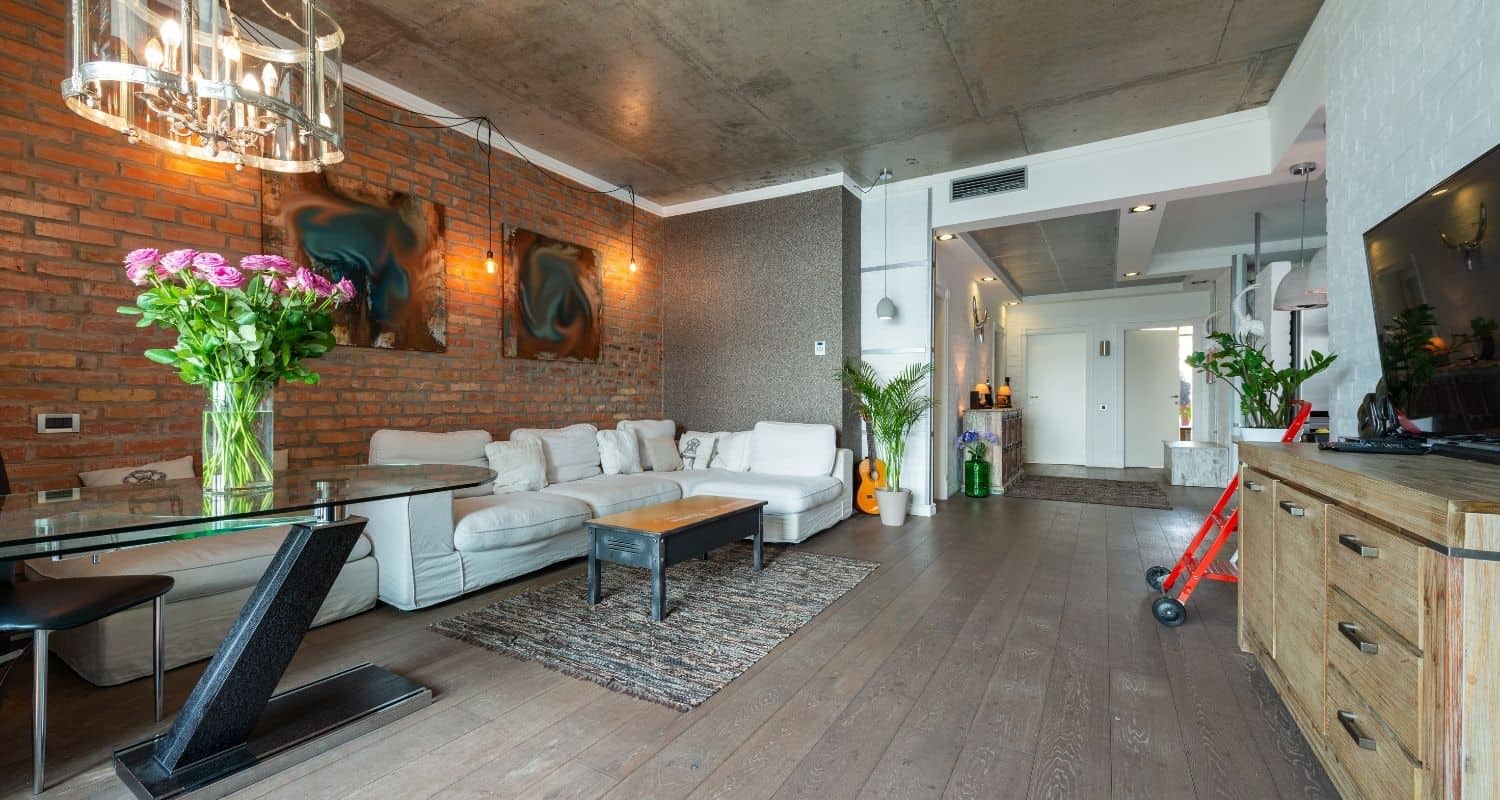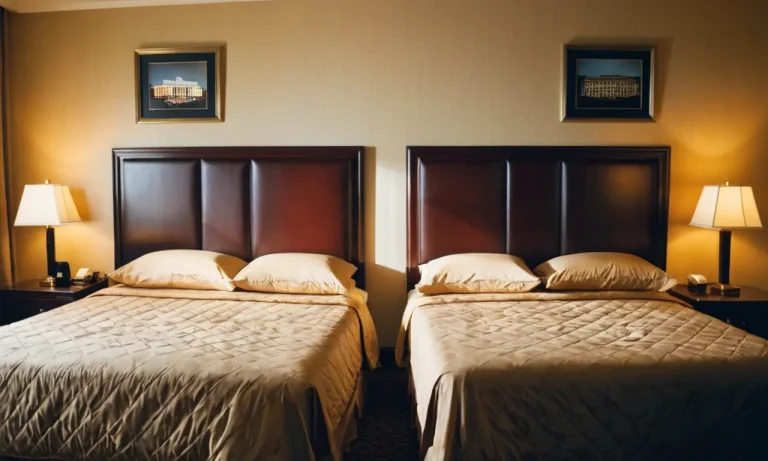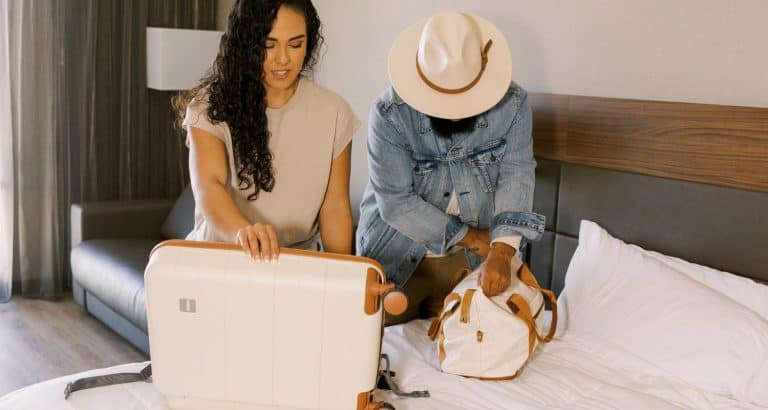Airbnb vs Hotel: Pros and Cons for Your Next Stay
Traveling has become an integral part of our lives, and the accommodation choice we make can significantly impact our overall experience. With the rise of the sharing economy, Airbnb has emerged as a popular alternative to traditional hotels, offering a unique and often more affordable way to explore new destinations.
However, the decision between Airbnb and hotels is not always straightforward, as each option comes with its own set of pros and cons.
If you’re short on time, here’s a quick answer to your question: Airbnb offers a more personalized and often cost-effective experience, while hotels provide a higher level of amenities, services, and standardized quality.
In this comprehensive article, we’ll delve into the advantages and disadvantages of both Airbnb and hotels, exploring factors such as cost, amenities, privacy, and local experiences. By the end, you’ll have a better understanding of which option aligns best with your travel preferences and needs.
Cost Comparison: Airbnb vs Hotels
Airbnb: Affordable Accommodations
Airbnb has gained immense popularity for offering budget-friendly accommodations compared to traditional hotels. With a vast array of options ranging from cozy apartments to entire homes, Airbnb allows you to find a place that fits your budget and needs.
According to Priceonomics, Airbnb listings are, on average, 21% cheaper than hotel rooms in the United States. This cost advantage can be even more significant in popular tourist destinations or during peak travel seasons.
One of the key benefits of Airbnb is the ability to split the cost among multiple travelers, making it an ideal choice for families or groups. You can rent an entire home or apartment, complete with a kitchen and living spaces, for a fraction of the cost of multiple hotel rooms.
This can lead to substantial savings, especially for longer stays. 😊
Hotels: Varying Price Points
While hotels can be more expensive than Airbnb in some cases, they offer a wide range of price points to cater to different budgets. From budget-friendly chains to luxury resorts, hotels provide options for every traveler.
According to Statista, the average daily rate for hotels in the United States was around $131 in 2021. However, rates can vary significantly based on location, amenities, and seasonality.
Hotels often offer loyalty programs, discounts, and package deals that can help offset costs. Additionally, many travelers find value in the consistent quality and services provided by reputable hotel chains.
👍 While the nightly rate may be higher, hotels typically include amenities like pools, fitness centers, and on-site dining, which can add value to your stay.
Additional Costs to Consider
Beyond the nightly rate, there are additional costs to consider when comparing Airbnb and hotels. With Airbnb, you may encounter cleaning fees, service charges, and potentially higher security deposits. These fees can add up, especially for shorter stays.
On the other hand, hotels often charge for parking, resort fees, and additional amenities like Wi-Fi or breakfast.
It’s essential to carefully review the total cost, including taxes and fees, before booking your accommodation. Both Airbnb and hotels can offer great value, but the final decision often comes down to your specific needs, budget, and travel preferences.
Don’t forget to factor in potential savings on meals by renting an Airbnb with a kitchen, or the convenience of hotel services and amenities. 😉
| Cost Factor | Airbnb | Hotels |
|---|---|---|
| Average Nightly Rate | 21% cheaper than hotels (US) | $131 (US average in 2021) |
| Additional Fees | Cleaning fees, service charges, security deposits | Parking, resort fees, amenities like Wi-Fi or breakfast |
| Potential Savings | Shared accommodations, kitchen for meal prep | Loyalty programs, package deals |
Amenities and Services: What to Expect
Airbnb: Unique Experiences and Limited Services
When it comes to Airbnb, one of the biggest draws is the opportunity to experience unique and authentic accommodations. From cozy apartments to quirky treehouses, Airbnb offers a diverse range of properties that can cater to almost any taste or preference.
🏡 The platform prides itself on providing travelers with a chance to immerse themselves in local cultures and neighborhoods, offering a more personal and intimate experience compared to traditional hotels.
However, it’s important to note that Airbnb properties typically come with limited services and amenities. While some hosts may go above and beyond to ensure a comfortable stay, others may provide only the bare essentials.
Don’t expect the same level of standardized services you’d find in a hotel, such as daily housekeeping, concierge services, or on-site restaurants and spas. According to a Statista survey, only 36% of Airbnb guests expected daily housekeeping services during their stay.
Additionally, while Airbnb has implemented certain safety measures and guidelines for hosts, the level of cleanliness and maintenance can vary significantly from one property to another. It’s always a good idea to read reviews and communicate with your host to ensure your expectations are aligned.
Hotels: Standardized Amenities and Services
On the other hand, hotels are known for their standardized amenities and services, which can provide a more predictable and consistent experience for travelers. 🏨 From plush bedding and daily housekeeping to on-site restaurants, fitness centers, and concierge services, hotels often offer a comprehensive range of amenities to cater to various guest needs.
Major hotel chains, in particular, have established brand standards that ensure a certain level of quality and consistency across their properties. This can be especially appealing for business travelers or those who value predictability and familiarity during their stays.
According to a Statista survey, 59% of hotel guests expected daily housekeeping services, compared to only 36% of Airbnb guests.
Additionally, hotels often have dedicated staff available 24/7 to assist with any requests or issues that may arise during your stay. This level of service can provide peace of mind and ensure a smoother and more hassle-free experience, especially for those who prioritize convenience and attentive service.
| Amenities/Services | Airbnb | Hotels |
|---|---|---|
| Daily Housekeeping | ❌ (typically not included) | ✅ (standard service) |
| On-site Restaurants | ❌ (rare) | ✅ (common) |
| Fitness Centers | ❌ (rare) | ✅ (common) |
| Concierge Services | ❌ (rare) | ✅ (common) |
| 24/7 Staff Assistance | ❌ (rare) | ✅ (standard) |
Consider your travel goals, budget, and desired level of service to determine which option best suits your needs.
Privacy and Personal Space
Airbnb: A Home Away from Home
One of the major advantages of choosing an Airbnb for your next stay is the privacy and personal space it offers. Unlike hotels, where you share common areas and corridors with numerous other guests, Airbnb rentals provide you with a home-like environment that is entirely your own.
Whether you’re traveling solo, as a couple, or with family, you can enjoy the luxury of having an entire apartment, house, or villa to yourself. 🏡 This means you won’t have to worry about noisy neighbors or crowded public spaces, ensuring a peaceful and relaxing stay.
With Airbnb, you can truly make yourself at home. You’ll have access to a fully-equipped kitchen, allowing you to prepare your own meals and save money on dining out. Many Airbnb hosts also provide amenities like laundry facilities, private outdoor spaces, and even entertainment systems, making your stay even more comfortable.
According to a survey by Ipsos, 83% of Airbnb guests felt more at home compared to staying in a traditional hotel.
Hotels: Shared Spaces and Potential Noise
While hotels offer a level of convenience and luxury, they often come with the trade-off of shared spaces and potential noise disturbances. You’ll have to navigate through crowded lobbies, elevators, and hallways, potentially encountering other guests or staff members.
Additionally, the walls in hotels are typically thinner, which means you may be subject to noise from neighboring rooms or hallway traffic. 🔊
Hotels also tend to have more public areas, such as restaurants, bars, and pools, which can be both a blessing and a curse. While these amenities provide convenience, they can also lead to overcrowding and a lack of privacy. According to a study by J.D.
Power, guest satisfaction with hotel noise levels has decreased in recent years, with only 69% of guests expressing satisfaction in 2021.
Furthermore, hotel rooms often have a standardized and impersonal feel, lacking the unique character and charm of an Airbnb rental. If you value privacy, personal space, and a home-like atmosphere, an Airbnb may be the better choice for your next stay.
Local Experiences and Cultural Immersion
Airbnb: Authentic Local Experiences
One of the key advantages of staying in an Airbnb is the opportunity to immerse yourself in the local culture and experience a destination like a true resident. By booking accommodations through Airbnb, you have the chance to stay in neighborhoods off the beaten path, away from the tourist hotspots.
This allows you to experience the daily rhythms and routines of the locals, from frequenting the neighborhood cafes and markets to exploring the hidden gems that only residents know about.
Airbnb hosts are often enthusiastic ambassadors of their city or town, eager to share insider tips and recommendations that can enrich your travel experience. From suggesting the best local restaurants and bars to providing insights into cultural traditions and events, hosts can offer a unique perspective that traditional hotels may struggle to match.
According to a study by Airbnb, 92% of guests reported that their host made them feel like they truly belonged in the neighborhood.
Moreover, many Airbnb listings offer unique and quirky accommodations that reflect the character of the area. You might find yourself staying in a cozy loft in a historic district, a charming cottage nestled in a rural village, or even a treehouse surrounded by nature.
These one-of-a-kind experiences can create lasting memories and provide a deeper connection to the local culture than a standard hotel room.
Hotels: Catering to Tourists
While hotels may not offer the same level of cultural immersion as Airbnb, they do cater to the needs and preferences of tourists in a more structured and predictable way. Hotels are typically located in popular tourist areas, providing easy access to major attractions, restaurants, and shopping districts.
This convenience can be appealing for travelers who prioritize proximity to popular sights and activities.
However, the downside of this tourist-centric approach is that the experience can feel somewhat detached from the local culture. Hotels often cater to a more generic and homogenized experience, with standardized amenities and services that may not necessarily reflect the unique character of the destination.
While some hotels make efforts to incorporate local elements into their design and offerings, the overall experience can still feel somewhat sanitized and removed from the authentic local culture.
That being said, hotels do offer a level of familiarity and predictability that can be comforting for some travelers. Reputable hotel chains strive to maintain consistent standards across their properties, ensuring a certain level of quality and service that can be reassuring for those who value reliability and familiarity. Additionally, hotels often provide a range of on-site amenities, such as restaurants, bars, fitness centers, and business facilities, which can be convenient for guests who prefer to have everything within reach.
Ultimately, the choice between an Airbnb and a hotel comes down to personal preferences and travel goals. For those seeking an authentic, immersive experience and a deeper connection to the local culture, Airbnb may be the preferred option.
However, for travelers who prioritize convenience, familiarity, and a more structured tourist experience, hotels may better suit their needs.
Safety and Security Considerations
Airbnb: Potential Risks and Guest Verification
When it comes to staying at an Airbnb, safety and security are understandable concerns. Unlike hotels, Airbnb properties are privately owned and managed, which can introduce potential risks. However, Airbnb has implemented various measures to mitigate these risks and ensure a secure experience for guests.
One of the primary safety features offered by Airbnb is their Trust and Safety program. This includes guest verification processes, such as confirming personal details and requiring government-issued ID uploads.
Additionally, Airbnb encourages hosts to set strict house rules and provides guidelines for maintaining a safe environment. However, it’s essential to note that the level of security can vary from one Airbnb property to another, as it ultimately depends on the host’s diligence and adherence to best practices.
Another potential risk associated with Airbnb stays is the lack of on-site staff or security personnel. In case of an emergency or security issue, guests may have to rely on contacting the host or local authorities.
To address this concern, Airbnb provides a 24/7 emergency line for guests to report any safety incidents or emergencies.
Hotels: Established Security Measures
When it comes to hotels, guests can generally expect a higher level of security and safety measures. Hotels typically have dedicated security staff, surveillance cameras, and strict access control protocols in place.
Many hotels also employ key card systems for guest room access, limiting unauthorized entry.
Furthermore, hotels adhere to industry-standard safety protocols and undergo regular inspections to ensure compliance with local regulations. According to a survey by the American Hotel & Lodging Association, 89% of hotels have implemented enhanced cleaning and safety protocols in response to the COVID-19 pandemic. These measures include frequent disinfection of high-touch areas, social distancing guidelines, and contactless check-in/check-out options.
However, it’s worth noting that even with these established security measures, incidents can still occur in hotels. Guests should always exercise caution and follow basic safety practices, such as locking their room doors and being aware of their surroundings.
| Aspect | Airbnb | Hotel |
|---|---|---|
| Guest Verification | Required ID uploads and personal details confirmation | Typically no strict guest verification process |
| On-site Security | Varies based on the property and host’s practices | Dedicated security staff and surveillance cameras |
| Emergency Response | 24/7 emergency line for reporting incidents | On-site staff and established emergency protocols |
Conclusion
The choice between Airbnb and hotels ultimately depends on your travel preferences, budget, and desired experiences. Airbnb offers a unique and often more affordable way to immerse yourself in local cultures, while hotels provide a standardized level of amenities, services, and security.
Whether you prioritize cost-effectiveness, personalized experiences, or a more traditional approach to accommodation, understanding the pros and cons of each option will help you make an informed decision for your next trip.
Embrace the adventure and choose the accommodation that best suits your travel style and needs.







